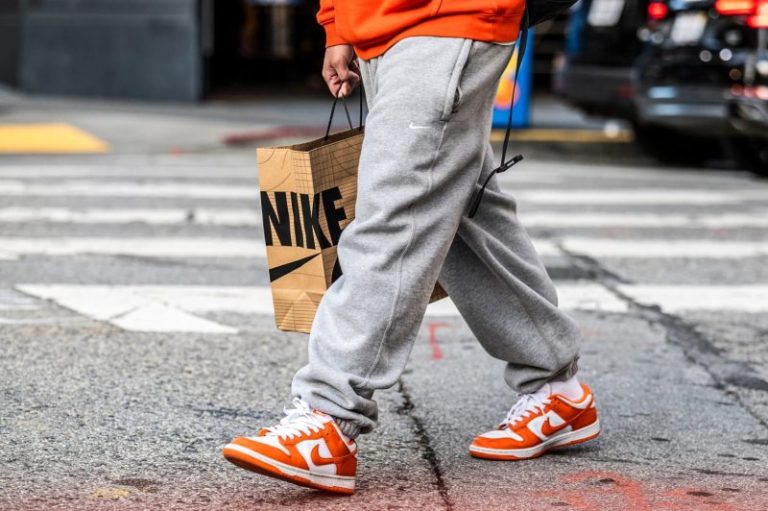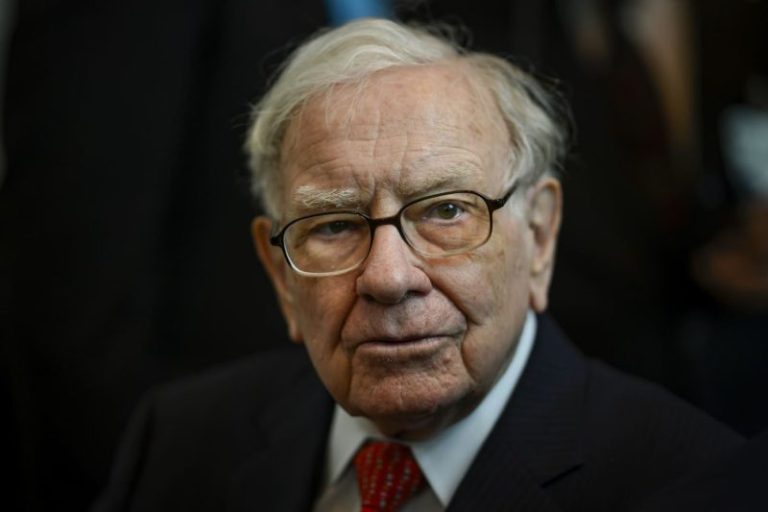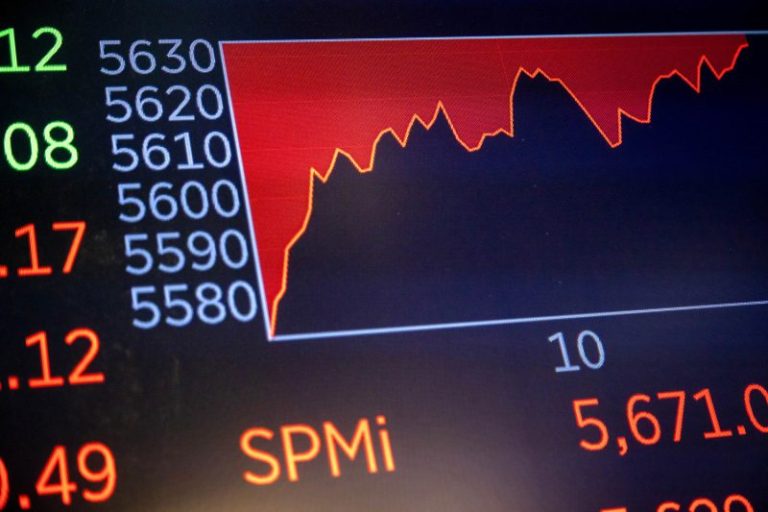Retailers and brands have turned to Vietnam to manufacture goods from sneakers to couches while moving some or all production out of China.
For years, China’s southern neighbor became a popular alternative for companies trying to avoid the crossfire of U.S. trade tensions with Beijing. Now, as President Donald Trump expands his tariff targets, they can no longer steer clear.
Trump said he will put a 46% duty on imports from Vietnam as part of a new wave of global levies announced Wednesday. That could soon raise costs for major corporations in the apparel, furniture and toy space, and some of them may pass those increases to consumers in the form of price hikes. The tariffs on Vietnam take effect on April 9.
China exported more goods to the U.S. than any other country for more than two decades, but Mexico surpassed China as the top source in 2023. China is now the second largest supplier to the U.S., accounting for $438.9 billion worth of goods in 2024, according to government data from the Office of the U.S. Trade Representative.
For companies that have looked to diversify the countries they rely on for production and reduce risks from trade conflicts with China, Vietnam has also become a popular place to go. Imports from Vietnam grew to $136.6 billion in 2024, up about 19% from 2023, according to the Office of the U.S. Trade Representative.
On the other hand, imports from China rose only 2.8% from 2023 to 2024, according to government data. Imports from China dropped about 18% last year when compared to 2022, when the U.S. brought in $536.3 billion in goods from the country.
The duties will hit companies at a time when many consumers have become value-conscious and selective about spending due to persistent inflation and concerns about the economy. While it is unclear now which companies will raise prices due to the tariffs, businesses may be reluctant to shoulder the higher costs as they forecast lackluster spending in the months ahead.
Some household names will feel the pinch from Vietnam tariffs. Nike manufacturers about half of its footwear in China and Vietnam, with about 25% coming from Vietnam. Trump will put a 34% tariff on top of existing 20% duties on imports from China, for an apparent rate of 54%, a White House official told CNBC.
The tariffs would be yet another headwind for the sneaker and athletic apparel giant, which already delivered a disappointing forecast for the current quarter. That guidance, which projects a double-digit percentage sales decline in the three-month period, included the estimated impact from tariffs on imports from China and Mexico.
Expanded tariffs could stall or slow Nike’s efforts to revive its brand and improve sales under its new CEO Elliott Hill, a company veteran who took the helm last fall.
Nike shares dropped more than 6% in extended trading Wednesday. Adidas and other major footwear players also rely heavily on Vietnam.
The two companies did not immediately respond to CNBC’s request for comment.
Nearly a third of footwear imports in the U.S. came from Vietnam in 2023, the most recent full-year data available, according to the Footwear Distributors and Retailers of America, an industry trade group.
Steve Madden, for example, said on an earnings call in early November that it would slash its imports to the U.S. from China by as much as 45% over the next year. The footwear maker made that announcement just days after Trump’s presidential victory, following his campaign trail promises to impose steep tariffs on countries like China.
Yet one of the nations Steve Madden has accelerated its move to is Vietnam, along with Cambodia, Mexico and Brazil, CEO Edward Rosenfeld said at the time on the earnings call.
Vietnam was the second largest country for suppliers of Ugg and Hoka parent company Deckers Brands as of this month. The company has 68 supply chain partners in Vietnam, which is surpassed only by its 125 suppliers in China. Deckers shares dropped nearly 9% in extended trading. The company did not immediately respond to a request for comment.
VF Corporation, which is made up of footwear, apparel and accessories brands including The North Face, Timberland, Vans and Jansport, has a heavy reliance on China and Vietnam, too. About 38% of its suppliers are in China and 17% are in Vietnam, adding up to 55% of exposure across the two countries, according to a manufacturing disclosure from December.
The company’s shares dropped more than 8% in extended trading Wednesday. VF declined to comment, citing its quiet period before its upcoming earnings report.
The furniture industry has also ramped up its reliance on Vietnam.
In 2023, 26.5% of U.S. furniture imports came from the country, close behind the 29% coming from China, according to data from the Home Furnishings Association, a trade group that lobbies on behalf of home goods retailers. The group cited investment banking firm Mann, Armistead & Epperson — one of the furniture industry’s top sources for data.
Taken together, that means about 56% of U.S. furniture imports come from both regions combined.
On an earnings call in February, Wayfair CEO Niraj Shah said the shift to countries outside of China has been “a growing trend” since Trump enacted tariffs during his first administration.
He said places like Cambodia, Indonesia, Thailand, the Philippines and Vietnam “have grown as places where folks have factories and where our goods are coming from.”
Wayfair’s stock plunged about 12% in extended trading. In a statement, Wayfair said it is “closely monitoring the evolving trade landscape.” The company added it is “well-positioned to continue offering customers the best possible combination of value, assortment, and experience.”
Toymakers have also leaned on Vietnam to make more merchandise that’s imported and sold to kids and adults across the U.S. Hasbro, SpinMaster, Mattel and Crayola are among the companies that work with GFT Group, one of the largest toy manufacturers in the Southeast Asia.
In addition to long-established manufacturing facilities in China, GFT currently has five production facilities in northern Vietnam that employ over 15,000 workers.
On a call in early March, Funko Chief Financial Officer Yves LePendeven said the company, which is known for its big-eyed plastic collectibles called Pops, was working hard to control what it could in the year ahead. That includes trying to offset tariffs by “renegotiating factory costs, accelerating our shift in production to other sourcing countries, and implementing pricing adjustments,” he said.
On the call, he said about a third of Funko’s global product purchases come from China. He didn’t name the countries that Funko was moving production to, but it is a customer of GFT Group.
Those toymakers did not immediately respond to CNBC’s requests for comment.
Curtis McGill is the co-founder of Hey Buddy Hey Pal, a toy company that specializes in Easter egg decorating kits. He said he expects the 46% tariffs to raise toy costs in the U.S., but added companies will likely be negotiating with suppliers in Vietnam to try to mitigate those hikes.
“A lot of manufacturers and the actual toy companies have been already having conversations with manufacturing plants having to to help in some regards, because the toy companies are getting pressure to try and maintain prices on this side from the retailers,” McGill said.
For companies, including apparel makers, the new tariff policies have raised questions about whether — and where — to potentially move their manufacturing. Last month, an investor asked American Eagle Outfitters about its exposure to Vietnam on its most recent earnings call.
Chief Financial Officer Michael Mathias said the jeans and apparel brand’s production is similar in Vietnam and China, with “high-teens to 20%” of production in each of those countries. He said the company aims to trim that back to single-digits by the back half of the year.
American Eagle shares dipped more than 5% on Wednesday. The company did not immediately respond to CNBC’s request for comment.
Yet both Mathias and American Eagle CEO Jay Schottenstein said on the company’s last earnings call that it will be crucial to stay flexible, while waiting to see how tariffs would play out and which countries would be targeted.
Schottenstein referred to eight years ago during the first Trump administration, when American Eagle also faced challenges and had to figure out a new plan.
Schottenstein said there’s another shift coming, but “nobody knows what the story is yet.”
“I wouldn’t be rushing,” he said. “You go rush, where am I rushing to? I don’t know where I’m rushing to.”
Peter Baum is the chief financial officer and chief operation officer of Baum Essex, a New York-based manufacturer with licenses to make products for brands like Nautica, Betsey Johnson and Steve Madden. During the first Trump administration in 2019, Baum moved factories from from China to the Philippines, Cambodia, Vietnam and India.
He told CNBC on Wednesday that the reciprocal tariffs would do massive damage to his company.
“This is how you start a global depression. After 80 years and five generations Trump just put us out of business,” Baum said.
— CNBC’s Sarah Whitten, Jason Gewirtz and Eamon Javers contributed to this report.
This post appeared first on NBC NEWS




